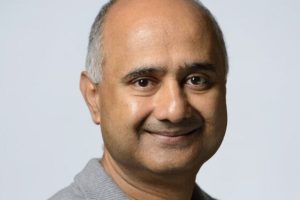
Two papers co-authored by Sanjeev Khudanpur, an associate professor of electrical and computer engineering (ECE) and a member of the Center for Language and Speech Processing (CLSP), were recognized by IEEE International Conference on Acoustics, Speech and Signal Processing (ICASSP) as among the most impactful in the conference’s 50-year history.
Originally published in 2015 and 2018, the studies highlight Khudanpur’s significant contributions to the field.
Both were featured in a series of retrospective ICASSP posters highlighting the most cited and downloaded papers from each year since the conference’s founding in 1976. Each poster showcases the most cited and most downloaded papers for a given year, based on IEEE Xplore metrics.
Khudanpur’s recognized work includes the 2015 “Kaldi Speech Recognition Toolkit” paper—widely known for launching one of the most-used open-source platforms in speech recognition—and the 2018 publication “X-Vectors: Robust DNN Embeddings for Speaker Recognition,” which introduced a breakthrough deep learning method for speaker identification.
Co-authors include Guoguo Chen (ECE) and David Snyder (Department of Computer Science), both of whom were Khudanpur’s PhD students, as well as Daniel Povey, who was a research professor in ECE and CLSP. Daniel Garcia-Romero and Gregory Sell, then research scientists at the Human Language Technology Center of Excellence (HLTCOE), also contributed. The projects further benefited from Vassil Panayotov, a freelance open-source contributor based in Bulgaria.
“These papers represent collaborative work by a talented group of researchers who were part of the JHU community at the time,” said Khudanpur. “It’s a rare and meaningful recognition for the entire team in a highly competitive, rapidly evolving field, and it reflects years of hard work, innovation, and dedication.”
Rama Chellappa, a Bloomberg Distinguished Professor in electrical and computer engineering and biomedical engineering and interim Co-Director of the Data Science and Artificial Intelligence (DSAI) initiative, noted that ICASSP has played a key role in disseminating seminal developments in speech synthesis and recognition, image compression standards like JPEG and MPEG, image analysis, and medical image reconstruction.
“Having two papers selected among the top 50 is a testament to the innovative and collaborative spirit of Khudanpur and his students. This recognition highlights not only his accomplishments, but also the academic, intellectual, and entrepreneurial energy of CLSP,” said Chellappa.